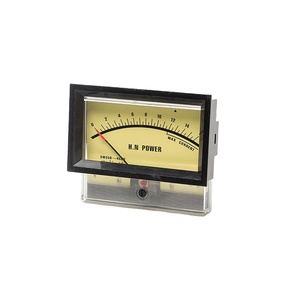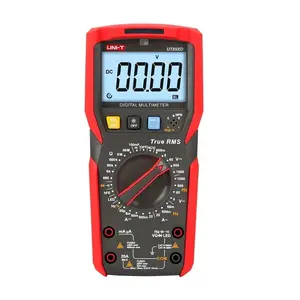Introduction to Voltage Meters
A voltage meter, also known as a voltmeter, is an essential instrument used in electrical engineering and various industrial applications to measure electrical potential difference between two points in a circuit. With the ability to provide accurate voltage readings, these devices are critical for diagnosing electrical issues, ensuring equipment operates within safe parameters, and maintaining overall system efficiency. In this guide, we explore the various types of voltage meters, their applications, features, and advantages to help professionals choose the right tool for their needs.
Types of Voltage Meters
Voltage meters come in various forms, each designed for specific measuring tasks. Understanding the different types can help in selecting the best one for your requirements.
- Analog Voltage Meters:
- Utilize a needle and dial to display readings.
- Ideal for visualizing trends in voltage changes over time.
- Digital Voltage Meters:
- Provide numeric displays, typically featuring higher accuracy.
- Often come with additional features such as data logging capabilities.
- True RMS Voltage Meters:
- Accurate measurements for non-sinusoidal waveforms.
- Essential for advanced electrical systems where accuracy is paramount.
- Clamp Meters:
- Combine voltage measurements with amperage readings.
- Allow for current measurements without direct contact, enhancing safety.
Applications of Voltage Meters
The versatility of a voltage meter allows it to be employed in numerous settings, making it a staple for professionals in various industries.
- Electrical Maintenance:
- Monitoring electrical systems to ensure they function optimally.
- Diagnosing faults in circuits for preventive maintenance.
- Manufacturing:
- Used in quality control processes to verify voltage levels in production equipment.
- Ensuring compliance with safety standards to prevent equipment failure.
- Research and Development:
- Employed by engineers and technicians to experiment and develop new electrical components.
- Facilitates testing of prototype devices during the development phase.
- Education:
- Commonly used in educational settings to teach students about electrical principles.
- Provides hands-on experience with practical applications of theoretical knowledge.
Features and Advantages of Voltage Meters
When selecting a voltage meter, it is essential to consider its features and advantages to ensure it meets the demands of your specific applications.
- High Precision:
- Digital voltage meters offer superior precision compared to analog meters.
- Minimizes errors in measurement, crucial for sensitive electrical work.
- Versatile Measurement Capabilities:
- Many models can measure AC and DC voltage, accommodating a wide range of applications.
- Some advanced models measure current, resistance, and frequency, providing multifaceted functionality.
- User-Friendly Interface:
- Digital displays offer straightforward reading and navigation.
- Some devices include update features for easier data tracking.
- Safety Features:
- Many voltage meters include overload protection to prevent equipment damage.
- Designs may also feature insulated probes for added safety during use.







































